Facebook’s Nicola Mendelsohn on her incurable cancer and why she’s determined to make a difference
Nicola is Facebook’s vice president EMEA, one of the most powerful women in the UK tech industry, but in 2016 she was told she had cancer. Now the 48-year-old mum of four tells Marie Claire why her new charity, Follicular Lymphoma Foundation, will help others by funding research for a cure…
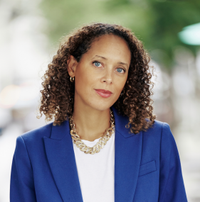
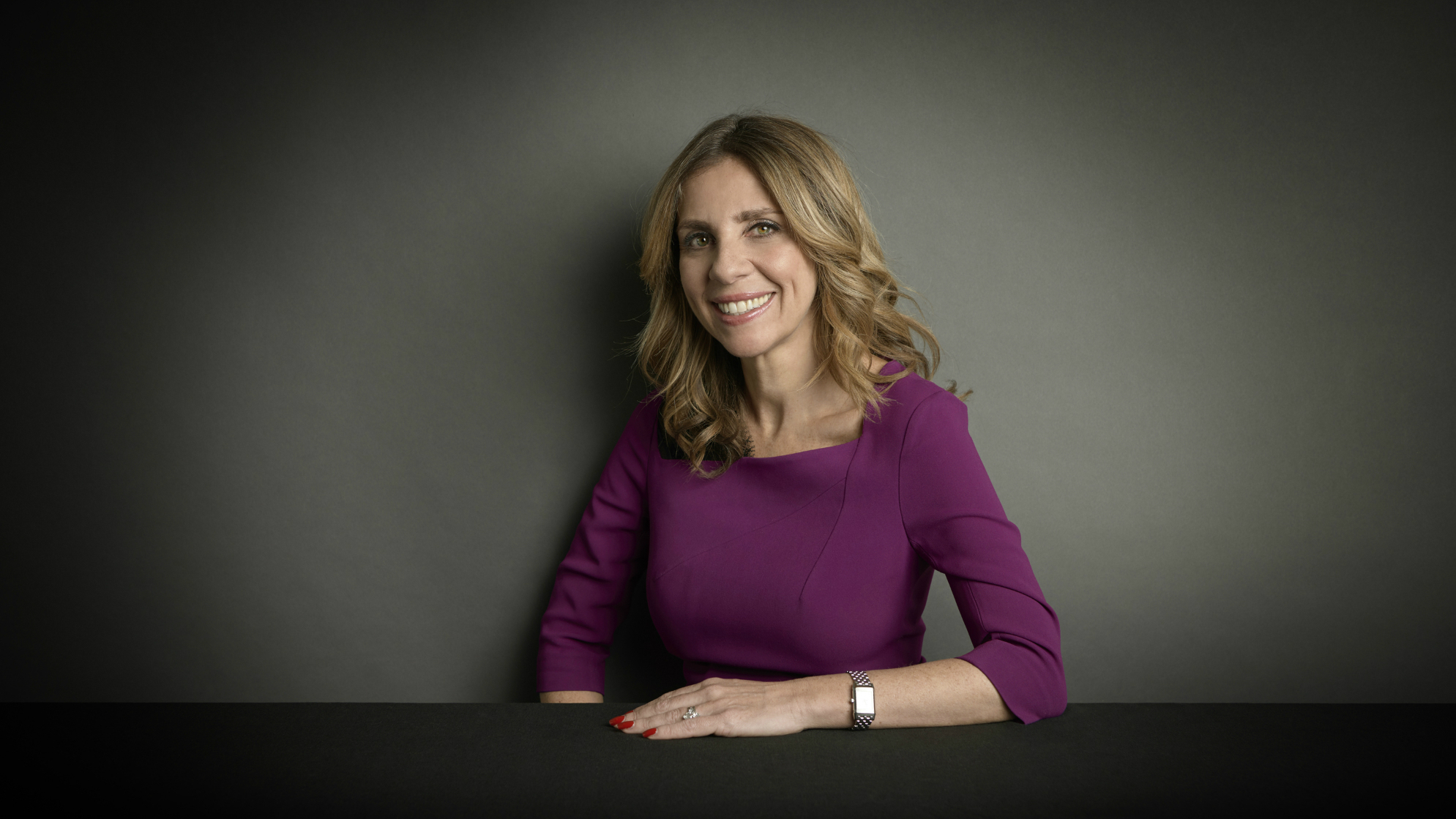
Nicola is Facebook’s vice president EMEA, one of the most powerful women in the UK tech industry, but in 2016 she was told she had cancer. Now the 48-year-old mum of four tells Marie Claire why her new charity, Follicular Lymphoma Foundation, will help others by funding research for a cure…
‘Some say that when something really bad happens to you, it’s as if time stands still. For me, it was the complete opposite. On November 16th, 2016 I was diagnosed with Follicular Lymphoma which is an incurable blood cancer. I was only 45. All these thoughts came rushing through my head. Would I see my kids become adults? Would I meet my grandchildren? Was I going to die and how long did I have left?
The diagnosis was a complete shock. I was fit and healthy and I didn’t even feel ill. As Facebook’s Vice President for Europe, the Middle East and Africa, I was used to a life constantly on the move. The only sign something was up was a small lump in my groin which was the size of a pea. It was only when I was sent for a scan that the true horror revealed itself and I saw there were tumours throughout my body.
Telling my kids was the hardest moment of my life. How do you explain that not only do you have cancer but that it’s also incurable? As a mum you’re meant to be a rock but I felt like I was falling apart. Luckily they coped amazingly with the news. They tell me they take their cues from me and that as long as I’m doing fine, they’re doing fine too.
We know very little about Follicular Lymphoma compared to other types of cancer. The life expectancy varies a lot. You could live for 20 years but then again, I’ve heard stories of people dying within a year of being diagnosed. Neither prognosis feels acceptable if you’re only in your 40s like I am.
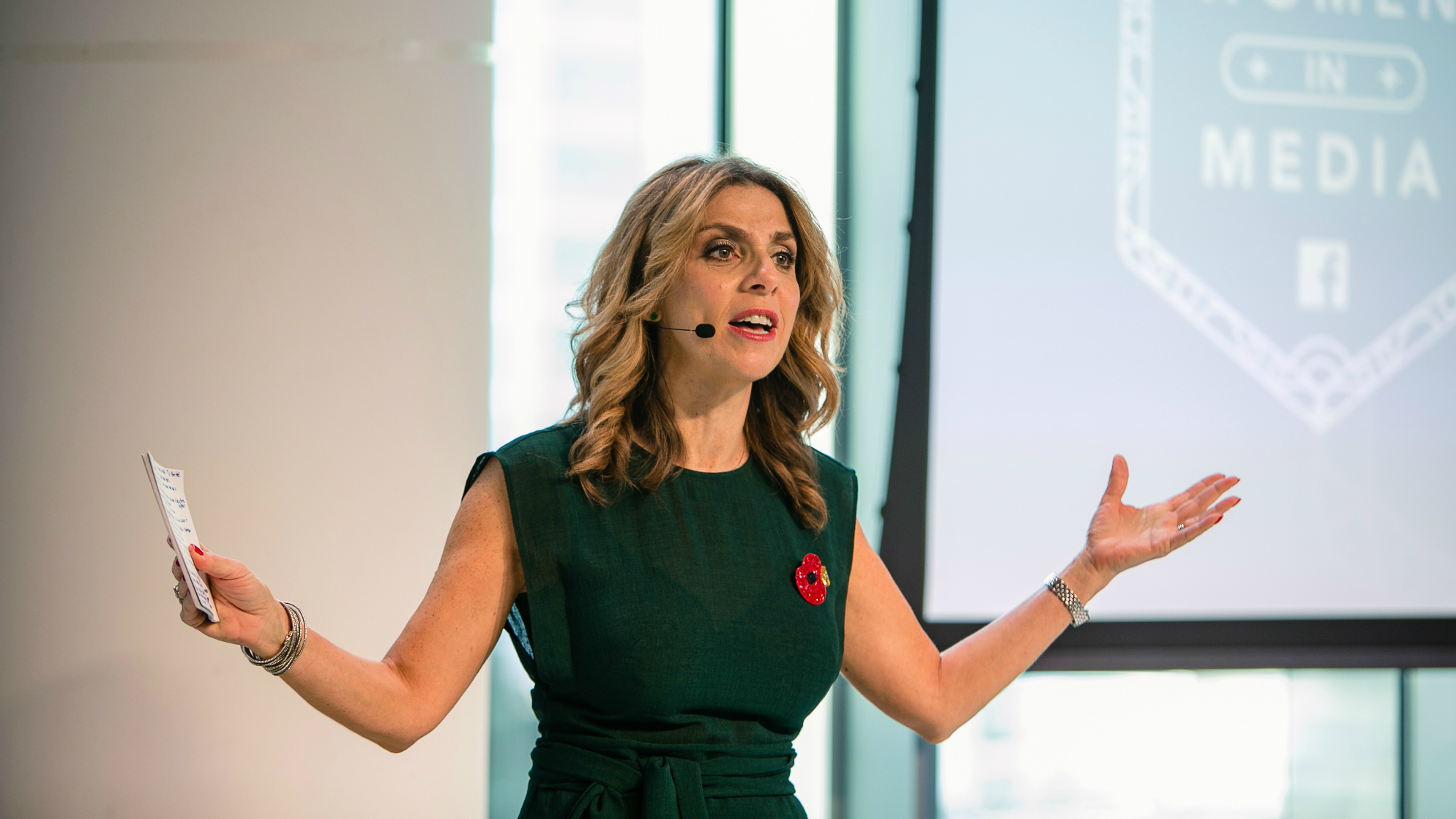
There are two things about my cancer that seem to constantly surprise people. The first is that I don’t look physically ill. When you think of cancer patients, normally you think of people losing all of their hair which hasn’t been the case for me. Follicular Lymphoma has been described as an ‘invisible cancer’ because you often appear well between treatments even though you’re living with the disease. This can be a hard thing for people to get their head around.
It isn’t like other cancers, where you immediately go into a gruelling treatment regime. It’s a slow-growing cancer, so patients can go for long periods without treatment and can have long gaps between treatments too.
Celebrity news, beauty, fashion advice, and fascinating features, delivered straight to your inbox!
The second thing that surprises people is that I continue to work full-time. Getting cancer forced me to take a long hard look at my life but I realised there was nothing I wanted to rip up and start again. Work is a huge part of my identity and it’s something that gives me energy rather than saps it. I’ve had to make some changes, including being kinder to my body. I used to be a complete sweet addict and I absolutely hated exercise but now I’ve given up the sweets and taken up the Pilates.You want your body to be as strong as it can be when you’re going through cancer treatment.
Luckily Facebook has been very supportive. The immediate reaction was ‘we’ll look after you’ and there’s been so many little acts of kindness - everything from colleagues offering ginger sweets to help deal with nausea to being given lavender to help me sleep. I’m very open about my cancer at work. I think it’s so important as a leader to show that you’re vulnerable like everyone else. I’ve had three CEOs get in touch privately to say they have the same cancer as me and I wonder what an impact it must have on them to hide such a big thing? Too often leaders only admit to having been ill after they’ve recovered but that makes other people feel that they can’t talk about their vulnerabilities either and it creates a lot of stress for everyone.
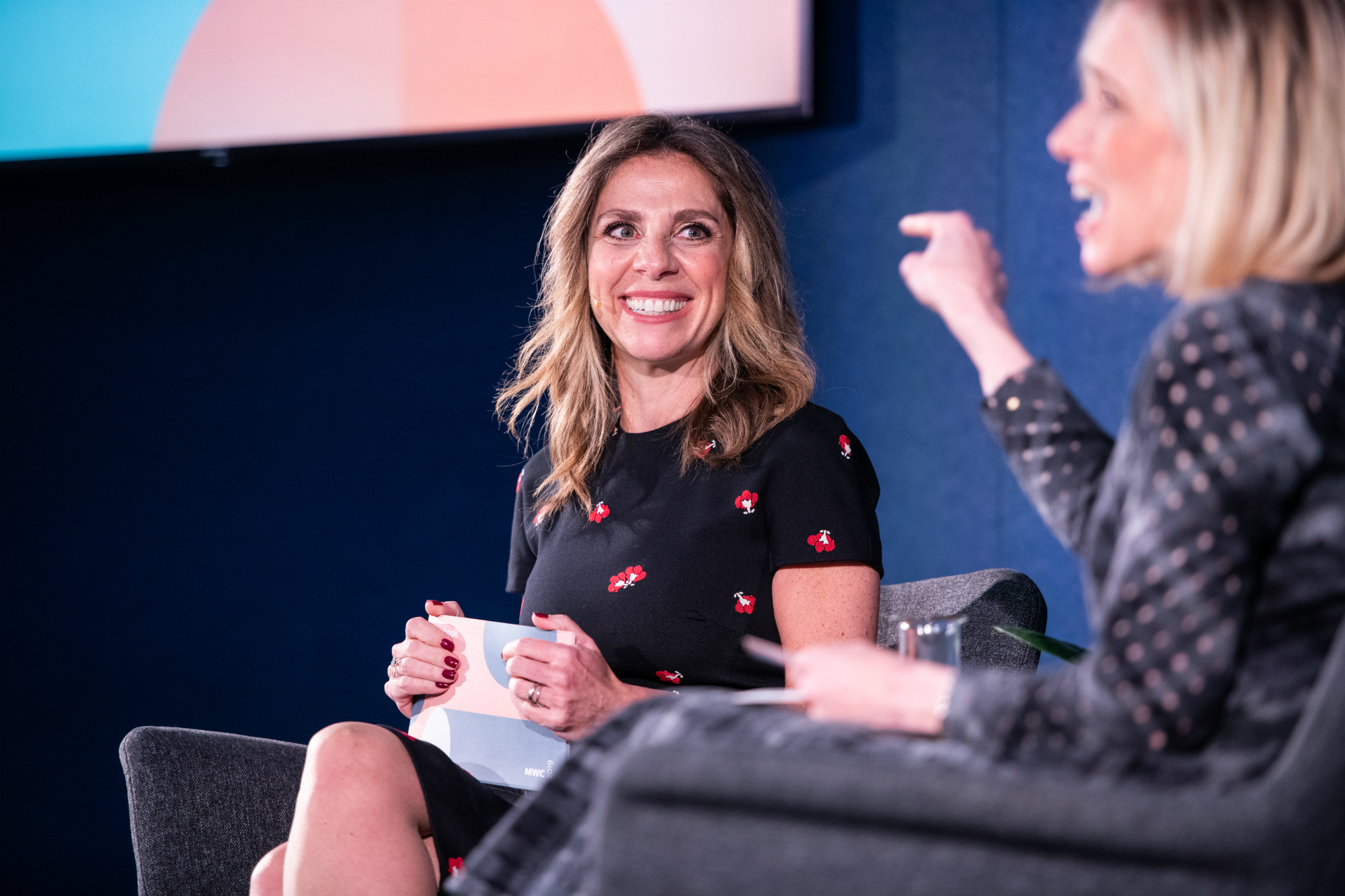
I’m lucky that I have the support of colleagues as well as amazing friends and family. When I was having treatment, I was told that when the chemo makes you feel exhausted, the very best thing you can do is to go for a walk. I’m so grateful that my family ran an informal rota to make sure that one of them would walk with me every single day. Even when I felt at my absolute worst those walks with each of my children were incredibly special as they were cherished time when we could chat together.
I’m also part of an incredible Facebook group called Living with Follicular Lymphoma for people who have the disease around the world. I’m now a co-admin of the group and it’s nearly 6,000 strong and the biggest group of its kind. It’s an unbelievable source of support and advice. I’m lucky to live in London where there’s so many cancer specialists but that’s not the same everywhere. In the group we can share what we learn with one another. We ask each other all sorts of questions, everything from ‘will I lose my hair during chemo?’ to ‘why am I having nose bleeds?’ Lifelong friendships have been formed through the group. For example, one member posted in the group about how he was struggling with treatment and feeling lonely. Now another member who happens to have treatment in the same hospital sits with him throughout his treatment and they go for lunch together.
One of the most difficult things about living with Follicular Lymphoma is how little progress has been made to find a cure especially as there are so many advances in science and treatment for so many other cancers and diseases. Follicular Lymphoma remains incurable despite hundreds of thousands of people suffering from it. The last major breakthrough in science was in 1975 which led to much better treatment becoming widely available in 1998. But with all the breakthroughs in research FL treatment has been left behind. I’m desperate for this to change and I’m in the fortunate position that I, working with some great allies, can try and make a difference. That’s why I’m launching a new charity - the Follicular Lymphoma Foundation – to try and find a cure. And to do it quickly. Based on all the work we have done to find out what is going on and who and where we can do the science and clinical work, my goal is to raise £15 million in the next three years to help fund targeted and advanced research into the disease and to be deep into trials. It’s a big ambition but one I’m determined to achieve.
My life used to be a quest for work–life balance. These days it’s all about work–life–cancer. I hope the payoff is finding a cure within the next ten years so that everyone living with Follicular Lymphoma can live well and get well.
* To help Nicola raise funds for a cure, please find out more from the Follicular Lymphoma Foundation at: www.theflf.org. Facebook: @FollicularLymphomaFoundation. Instagram: @FollicularLymphomaFoundation. Twitter: @Cure_FL. Hashtag: #CureFL*
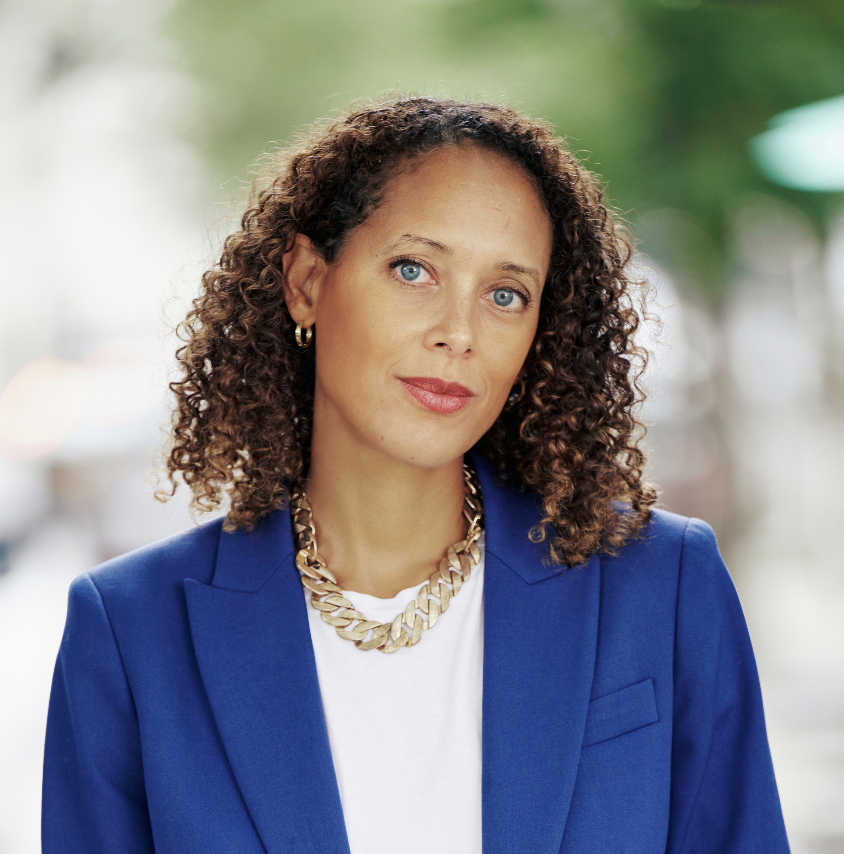
Andrea Thompson is Editor in Chief at Marie Claire UK and was named by We are the City as one of the UKs top 50 trailblazers for her work championing gender equality. She sits on the committee of the British Society of Magazine Editors where she acts as Chair.
Andrea has worked as a senior journalist for a range of publications over her 20 year career including The Sunday Times, The Guardian, The Daily Mail, Channel 4, Glamour and Grazia. At Marie Claire UK, Andrea oversees content, strategy, events and campaigns across fashion, beauty and the brand's purpose pillars. Follow her on instagram at @andreacanwrite